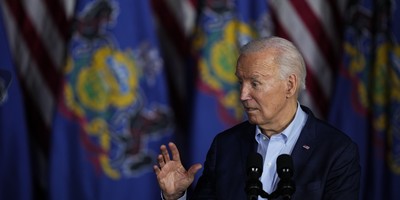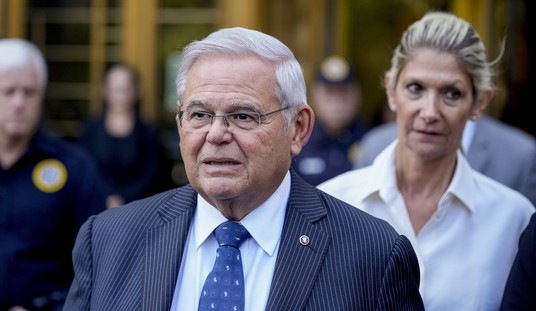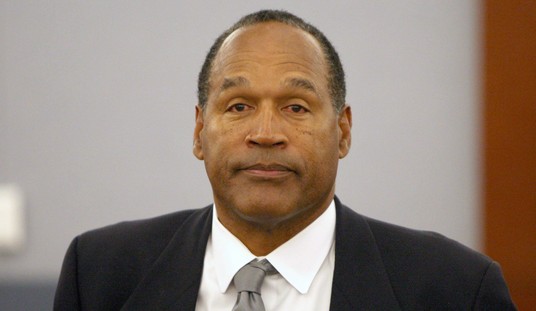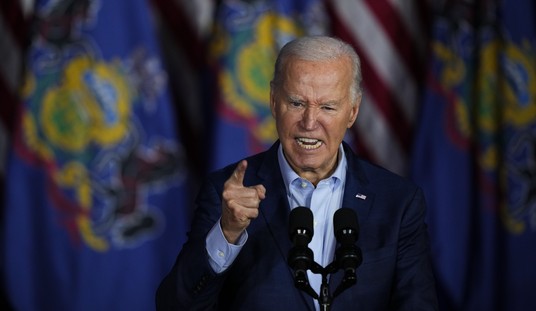Judging from recent reports by the National Drug Intelligence Center, you could come to the conclusion that Mexican drug cartels can do something the U.S. government cannot: control border crossings.
The cartels maintain "gatekeepers" -- their own sort of Border Patrol.
"Gatekeepers regulate the drug flow from Mexico across the U.S.-Mexico border into the United States by controlling drug smugglers' access to areas along the border," says identical language in NDIC reports on southern Arizona and West Texas. "Gatekeepers collect 'taxes' from smugglers on all illicit shipments that are moved through these areas, including drugs and illegal aliens. The taxes are generally paid to the DTO that controls the area; the DTO then launders the tax proceeds."

By contrast, these and other reports published this year by the NDIC -- a division of the U.S. Justice Department -- describe a U.S. government that often exerts little control over who crosses the border and with what.
California's border, says NDIC, is "easily breached."
"The vast border area presents innumerable remote crossing points that traffickers exploit to smuggle illicit drugs, primarily marijuana into the country from Mexico," says NDIC's March report on California's border region. "These areas are easily breached by traffickers on foot, in private vehicles or in all-terrain vehicles (ATVs) as they smuggle drugs between POEs (Ports of Entry), particularly in the mountainous areas in eastern San Diego County and the desert and sand dune areas in Imperial County."
Recommended
Between official ports of entry, says NDIC, Arizona's border has "few physical barriers" and is "underprotected."
"Large amounts of illicit drugs are smuggled into the area from Mexico, and bulk cash is transported from the area into Mexico," says NDIC's report on southern Arizona. "These trafficking activities are facilitated by several factors unique to the region, including ... a remote, largely underprotected border area between Arizona's points of entry."
Most of this "underprotected border" is not fenced.
"By the end of January 2009," says the NDIC report, "108 miles of the 262-mile shared border between Arizona and Mexico will have some type of fencing. However, few physical barriers exist in border areas between POEs, particularly in the West Desert area of the U.S. Border Patrol (USBP) Tucson Sector, to impede drug traffickers, chiefly Mexican DTOs, from smuggling illicit drug shipments into the United States from Mexico."
Some fences that have been built are pathetically inadequate.
"Traffickers use vehicle platforms or car carriers retrofitted with ramps that can extend over the border fence to allow vehicles to cross into the HIDTA (High Intensity Drug Trafficking Area) region," says the report. "The ramps are set up in less than a minute, providing agents with a very small window of time in which to interdict these types of smuggling attempts."
Arizona's border is also vulnerable to exploitation by potential terrorists.
"Alien smuggling organizations reportedly also smuggle aliens from countries other than Mexico, including special-interest countries," says the NDIC report. "Special-interest countries are those designated by the intelligence community as countries that could export individuals who could bring harm to the United States through terrorism." New Mexico's border is hampered by "minimal law enforcement coverage."
"More than half the length of this border is desolate public land that contains innumerable footpaths, roads and trails," says NDIC's April report on New Mexico. "These factors and minimal law enforcement coverage make the area an ideal smuggling corridor for drugs and other illicit goods and services -- primarily alien smuggling into the United States and weapons and bulk cash smuggling into Mexico."
The West Texas border also suffers from scarce law enforcement and potential exploitation by terrorists.
"Moreover, the region's location along the U.S.-Mexico border poses national security and law enforcement issues for the region, such as alien smuggling, weapons transportation, and terrorist entry into the United States through and between ports of entry," says NDIC's West Texas report, published in March.
"As with other areas between POEs along the U.S.-Mexico border in West Texas," the report says of Big Bend National Park, "limited law enforcement presence and rugged terrain make the park conducive to smuggling activities."
Between ports of entry in South Texas, NDIC says, the border is "easily breached" and guarded by few "physical barriers."
"Few physical barriers exist between POEs to impede drug traffickers, particularly Mexican DTOs, from smuggling illicit drug shipments into the United States from Mexico," says a report published in February. "Along many areas of the U.S.-Mexico border in South Texas, the Rio Grande River can be easily breached by smugglers on foot or in vehicles, enabling Mexican DTOs to smuggle multikilogram quantities of illicit drugs, primarily marijuana and cocaine, into the United States."
Our president and congressional leaders now seek to control Earth's climate by capping carbon emissions in the United States -- even as they fail to perform their constitutional duty by capping the flow of contraband crossing our border from Mexico.























Join the conversation as a VIP Member